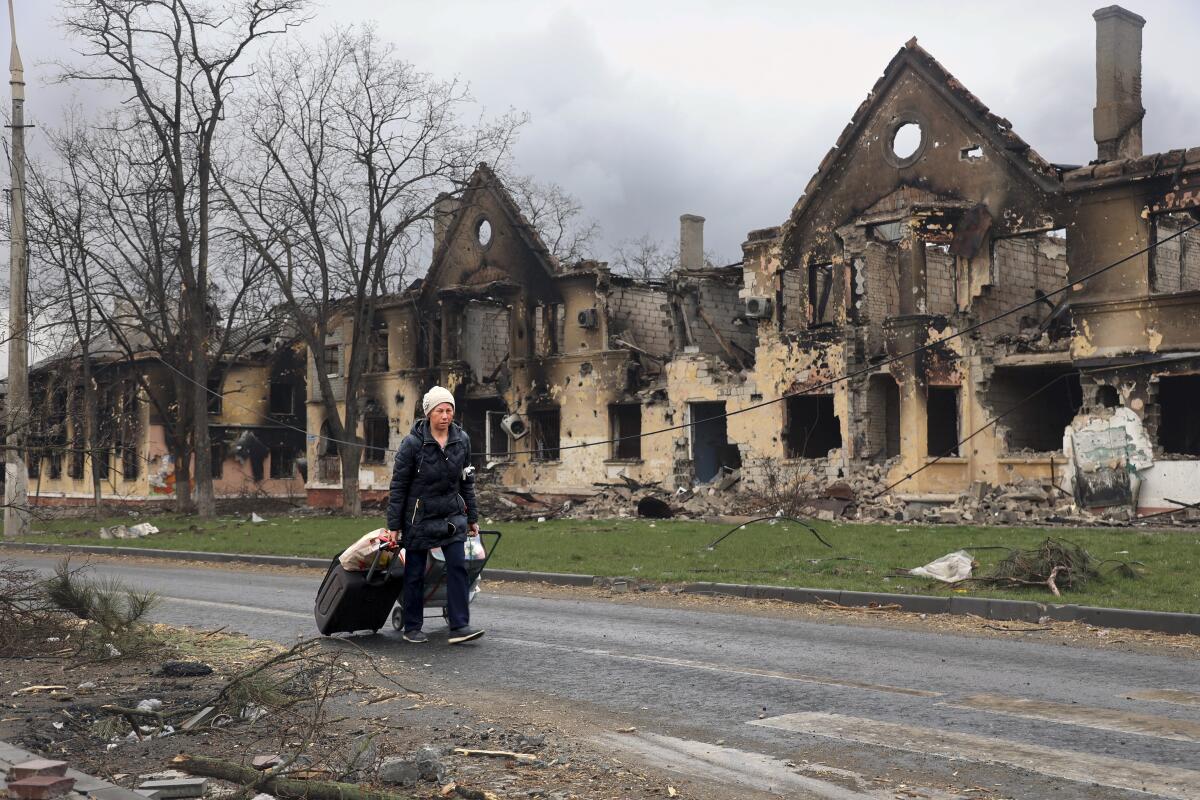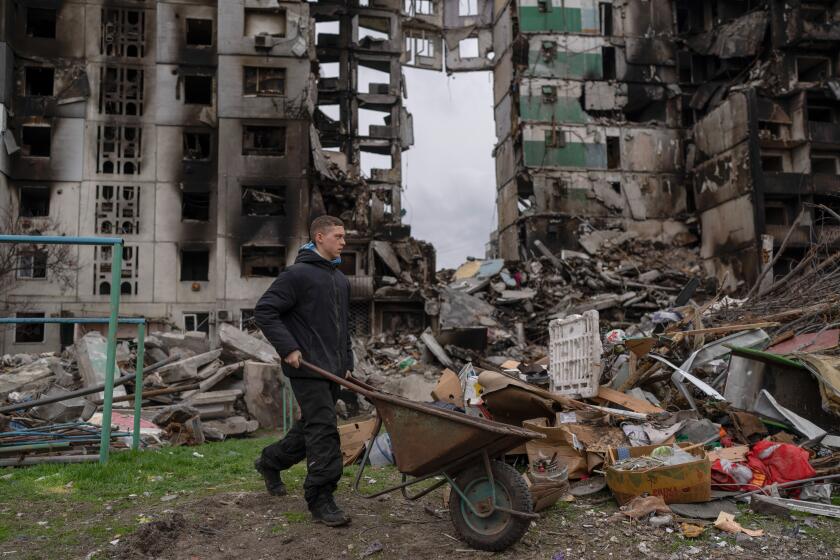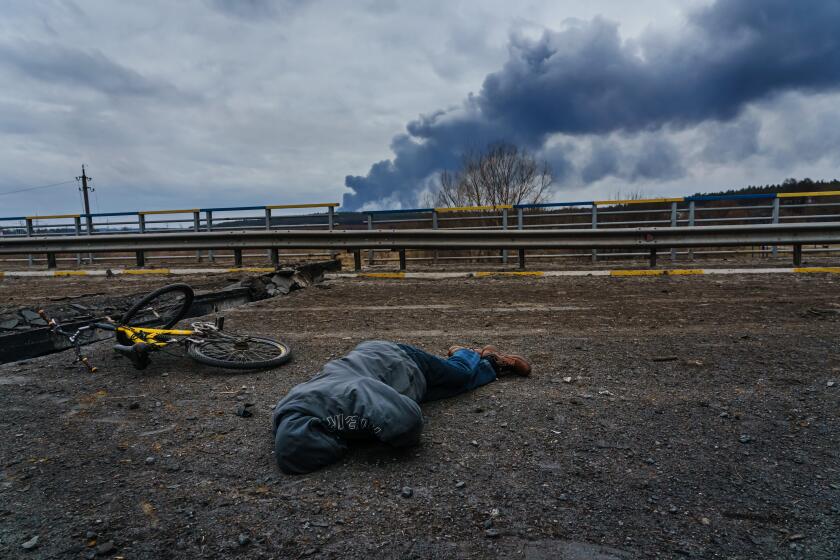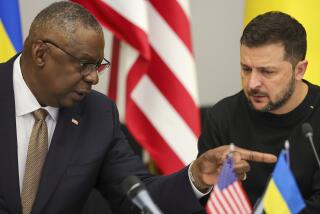How to investigate alleged Russian chemical attacks in Ukraine

THE HAGUE — Ukraine said Tuesday that it is investigating a claim that a poisonous substance was dropped on the besieged city of Mariupol. Deputy Defense Minister Hanna Maliar said it was possible that phosphorus munitions — which cause horrendous burns but are not classified as chemical weapons — had been used.
Now the question is how to establish the truth amid the fog of war that has descended over a city still under attack from Russian forces. A clear answer is unlikely to emerge anytime soon.
The global chemical weapons watchdog said Tuesday that it is “concerned by the recent unconfirmed report of chemical weapons use in Mariupol” and is closely monitoring the situation in Ukraine. Both Russia and Ukraine belong to the 193-member Organization for the Prohibition of Chemical Weapons.
The OPCW, which was awarded the Nobel Peace Prize in 2013, says that it “remains ready to assist any State Party upon its request, in case of use or threat of use of chemical weapons.”
Who could investigate?
First in line to investigate in Ukraine is the country’s own law enforcement agencies. There also are teams from other nations investigating allegations — particularly around the Ukrainian town of Bucha — of war crimes, and the International Criminal Court has launched an investigation in Ukraine. The OPCW has, so far, not announced any investigations in Ukraine, although it says on its website that it “is monitoring the status of relevant chemical industrial facilities and any threats of use of toxic chemicals as weapons in the country.”
More than 10,000 civilians have been killed in Mariupol, as Russians use mobile cremation equipment to conceal war crimes, a city official says.
Marc-Michael Blum, former head of the OPCW’s laboratory and now an independent consultant, said the organization won’t send a team to Mariupol anytime soon to investigate.
“We have an active war zone where the OPCW would not send a team in because the security of the team cannot be guaranteed,” Blum told the Associated Press.
How are suspected chemical attacks investigated?
If a team of experts were able to investigate what was used and by whom, it would seek to build a dossier of evidence based on laboratory tests of samples collected at the scene and from victims. That means taking soil samples and testing them for traces of possible chemical weapons or other munitions. Samples of blood and urine from victims who were exposed to the munition would also be tested.
Then investigators would seek to interview witnesses and survivors, to build a picture of what they experienced, and the physicians who treated them. In past investigations, experts have studied gas dispersion models and topographic charts and looked at digital images. The OPCW has experience building such investigations in Syria, where its experts have confirmed the use of chemical weapons on multiple occasions.
Damascus denies using chemical weapons.
President Biden has flatly called Vladimir Putin a ‘war criminal’ after Russia bombed hospitals and maternity wards in Ukraine.
What happened in previous cases of chemical weapons use elsewhere?
Hundreds of people were killed in gas poisoning attacks in Syria during the country’s civil war. The OPCW faced numerous hurdles and Russian vetoes complicating the establishment of investigation mechanisms. To this day, no one has been held accountable.
Two recent cases outside Syria show how a suspected chemical weapon use can be investigated by local authorities — the poisoning in 2020 of Russian opposition figure Alexei Navalny and of former double agent Sergei Skripal and his daughter in the English city of Salisbury in 2018.
In those cases, authorities in Germany, where Navalny went for treatment, and in the United Kingdom in the case of the Skripals, took and tested biological samples and concluded that they were targeted with a Soviet-era nerve agent known as Novichok. In those cases, the OPCW tested the samples and confirmed the findings by national authorities.
Russia denied involvement in both attacks.
If phosphorus was used in Mariupol, is it illegal?
Phosphorus munitions are not considered chemical weapons. Most armies have phosphorus munitions to use for illuminating battlefields or targets or to produce smoke screens. However, if an army deliberately fired a phosphorus munition into an enclosed space in order to expose people to toxic fumes, it could be a breach of the Chemical Weapons Convention, said Blum.
“Once you start using the properties of white phosphorus, toxic properties, specifically and deliberately, then it becomes banned,” he said.
In Russia’s war in Ukraine, investigators are able to collect evidence of war crimes “in real time,” lawyers and experts say, giving hope of more timely justice.
What are the chances of a successful investigation in besieged Mariupol?
Blum is not optimistic. Given that the current situation in Mariupol is “almost impossible to really pin down,” he said he has “no high hopes” for any kind of investigation.
More to Read
Sign up for Essential California
The most important California stories and recommendations in your inbox every morning.
You may occasionally receive promotional content from the Los Angeles Times.













